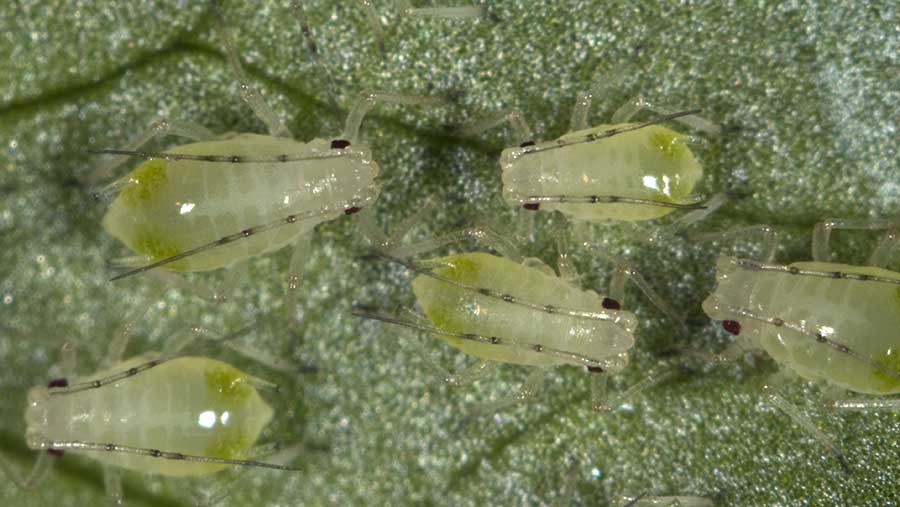Aphid numbers drop thanks to cooler conditions
 © FLPA/Nigel Cattlin/Rex Shutterstock
© FLPA/Nigel Cattlin/Rex Shutterstock Aphid activity has fallen on the back of colder temperatures in recent weeks, meaning growers can hold off on insecticide sprays.
The latest aphid alert summary from Rothamsted Research and AHDB reports low numbers of most aphid species in cereal and oilseed rape crops.
Rothamsted Research scientist Mark Taylor said: “Aphid flight activity has been relatively low, particularly in central and southern England.
“Winter cereals have gone in quite late because of the delayed harvest and we have no reports of any significant infestation so far.
See also: High pyrethroid resistance found in cabbage stem flea beetle
“If used, seed treatments will probably give a few more weeks protection, so growers will need to check if aphids are still flying in early November.”
Mr Taylor added that temperatures have been hovering around the 12C aphid flight threshold, and when temperatures do rise above this, the flight windows have been small due to short day length.
In the week of 12 October, only bird cherry-oat aphid numbers remained above average in the west and far east of the country, despite a decrease in activity compared with the previous week.
However, the report says these will play no part in the spread of barley yellows dwarf virus (BYDV) and in general only a small proportion of aphids entering cereal crops are likely to be carrying the virus.
Aphid alert in brief
- Colder temperatures in the week of 12 October led to less aphid flight activity
- Bird cherry-oat aphid numbers fall but remain above average in west and far east of UK
- Grain aphid numbers are low
- Peach-potato aphid numbers have dropped right off but have the potential to carry turnip yellows virus
- No mealy cabbage aphids found in suction traps
- Only a small proportion of aphids entering cereals are likely to be carrying BYDV

